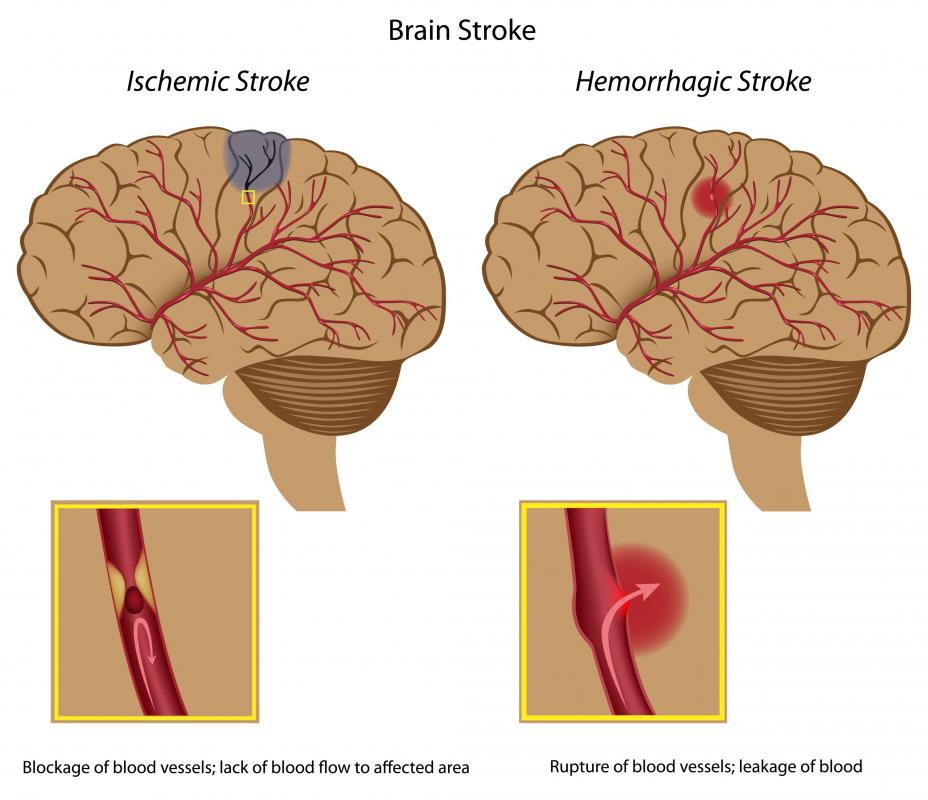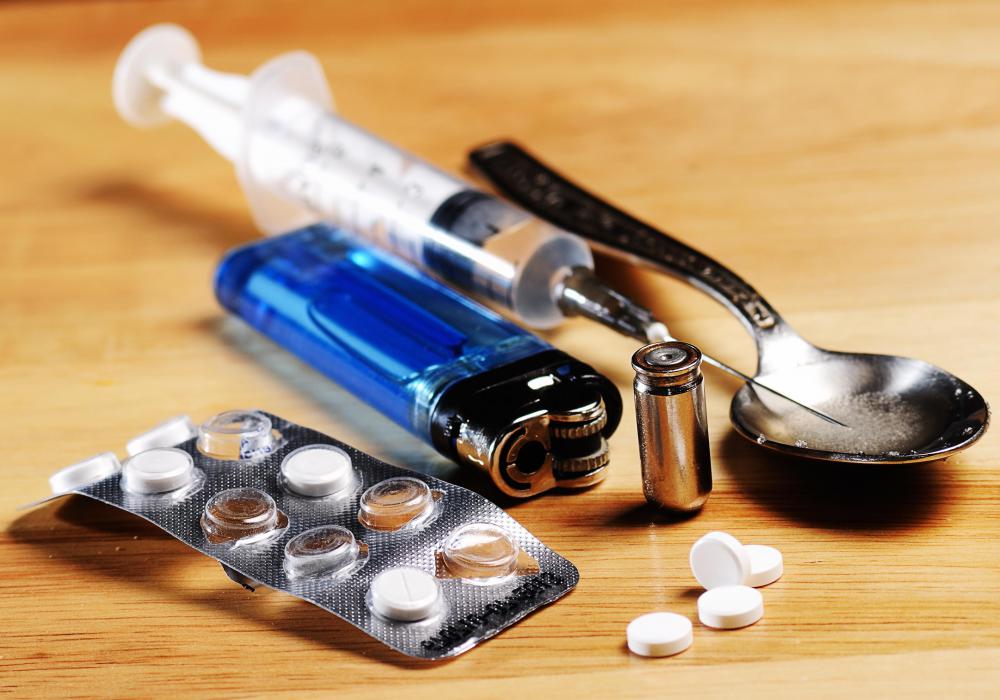At TheHealthBoard, we're committed to delivering accurate, trustworthy information. Our expert-authored content is rigorously fact-checked and sourced from credible authorities. Discover how we uphold the highest standards in providing you with reliable knowledge.
What is Stroke Speech Therapy?
Stroke speech therapy is a form of speech therapy which is designed to help stroke victims regain the ability to communicate and address the physical and cognitive deficits which can be a legacy of a stroke. The sooner speech therapy is provided after a stroke, the better the prognosis for the patient; many speech therapists who specialize in stroke treatment practice in hospitals so that they can work with patients as soon as they are stabilized. Both adult and pediatric stroke speech therapy are available, with approaches which differ, depending on the age of the patient.
A stroke can deal a lot of damage to the brain. Many stroke victims experience aphasia, language impairment caused by damage to the areas of the brain involved in processing language. Patients may also have trouble speaking after a stroke due to loss of muscle control and muscle weakness in the mouth and throat which slur the victim's words or make it difficult to form speech. A speech-language pathologist can address these issues in stroke speech therapy, helping the patient re-establish communications skills.

Depending on the severity of the stroke, a patient's language skills may make a full recovery during stroke speech therapy, or the therapy may simply help the patient communicate more clearly, or help the patient develop new methods of communication to compensate for damage caused by stroke. Language deficits caused by strokes are often very frustrating for patients because they may feel like they are trapped inside and unable to communicate, and as a result, stroke speech therapists must also be compassionate, patient caregivers who support their patients through psychological outbursts in addition to difficulty with speech as they undergo therapy.

Studies on stroke victims have shown that in addition to early intervention, intensive therapy also helps. Stroke speech therapy may be grueling in the first days and weeks after the stroke as the therapist uses a variety of speech therapy activities to stimulate the patient and get him or her communicating successfully. These activities can include things like singing, repeating lists, answering questions, and relearning the physical mechanisms involved in speech.

Receiving stroke speech therapy doesn't just help patients communicate. It can address problems with swallowing which emerge in the wake of a stroke, and the stimulation of the brain may also facilitate recovery from other neurological deficits, helping the patient reach a normal activity level after a stroke. Speech therapy is also psychologically beneficial for stroke patients, which can contribute to an improved prognosis.
AS FEATURED ON:
AS FEATURED ON:

















Discussion Comments
Life after a stroke can be a difficult road to recovery, depending on how devastating the stroke was. For some, it may be a turn for the worst, but for others, it may result in difficulties which are curable with therapy and medicine. Finding a high quality therapist and trusted diagnosis and medicine is important.
Speech therapy for strokes can involved a lot of new theories and methods which are constantly being improved and can vary depending on both the preference of the therapist and the specific case of the patient. Therapists should learn to be flexible with these methods and apply the correct one where needed.
After a stroke, coping with a loss of speech and comprehensive ability can be quite difficult, and that is why it is helpful to hire an understanding speech therapist to help the person cope and aid the family in emotional improvement. This practice is one which requires tough skin and a big heart, in addition to all the details of learning that may be required.
Post your comments